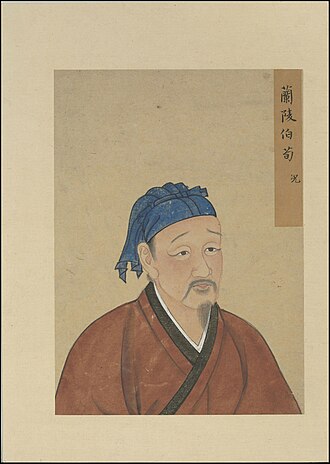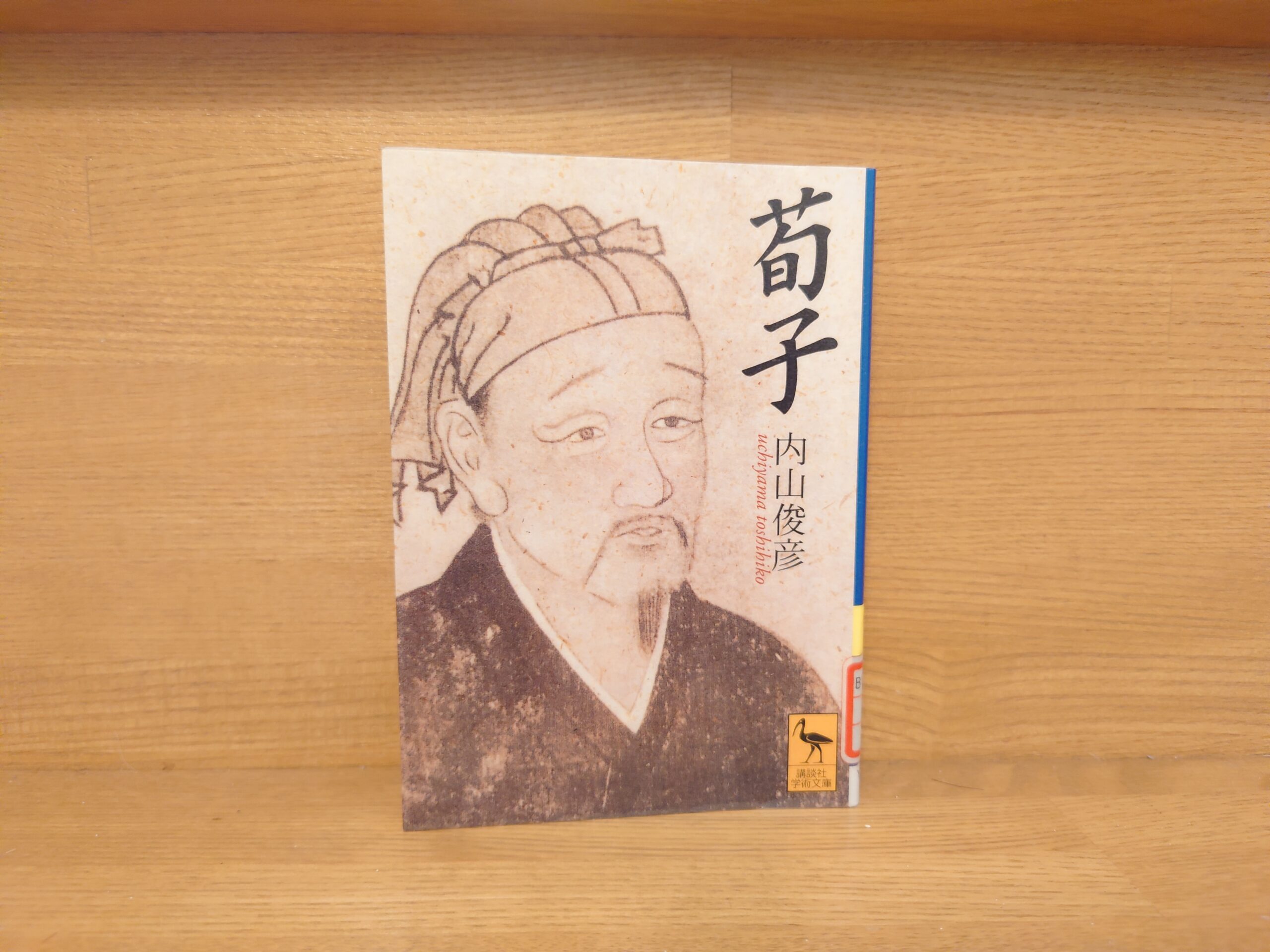Toshihiko Uchiyama, "Genshi" Summary and Comments - Recommended reference book to learn about Confucian thought, famous for its sexual vices.
The book introduced here is "Junko" by Toshihiko Uchiyama, published by Kodansha in 1999.
Let's take a quick look at the book.
Although a Confucianist, Geng Zi developed unique ideas that did not fit into the traditional framework of Confucianism. This book explores from various perspectives his realistic and rational thought, including his famous "theory of sexual vice," his view of nature known as "the portion of heaven and man," and his view of the nation as seen in his theory of the "kingdom of courtesy," and clarifies his place in the history of ancient Chinese thought.
AmazonProducts Page.

This book is a recommended reference for Geng Zi, a Confucianist famous for his "sexual vice theory". As mentioned in the book introduction above, Geng Zi was one of the Hundred Confucian scholars who lived during the last days of the Warring States Period, when the Qin Empire was born. The author says the following about this book in his "Conclusion".
In this book, I have attempted to place Geng Zi, the last Confucian thinker who was able to lead a nomadic life as a "Zhu Zi" in the Warring States period, on the historical stage in which he lived, to illuminate his thought activities from several directions, to explore the framework of the thought world he created, and to understand what his thought has meant in history. Through these activities, I have attempted to discover the framework of the world of thought that he created and the meaning of his thought in history. It is my intention to paint my own portrait of the ancient Chinese thinker, Jung Tzu.
Kodansha, Toshihiko Uchiyama, "Jyunzi," p. 332.
As will be discussed here, this book will detail the historical background in which Geng Zhi lived.
Jung Tzu was a famous Confucianist from an earlier period who preached the "theory of sexual vice."Mencius (Meng Zi) (371-289BCE)(ca. 370-300 BCE) preached "sexual goodness.
In this book, you will learn why the same Confucianists preached diametrically opposed ideas, and how the influence of the historical background can be seen strongly in this. Here is an example.
Why, then, did Mencius have to insist so strongly on "sexual goodness" in this sense? It is impossible to understand Mencius' political ideals apart from his "royal road" philosophy, which is a typical example of the "morality-governance" principle. Mencius witnessed the social upheaval, wars and deprivations by those in power, and the miserable lives of the people during the middle of the Warring States period, and in response, he proposed the idea of "royal road"-stability of the people through "benevolent rule" by the ruler and peaceful unity under heaven through such stability. According to him, the "royal road" is not an empty theory but a feasible one, and the way to realize it is for the people of the ruling class to awaken to the fact that their own nature is good, expand their own moral elements, and practice the so-called "benevolence and righteousness" virtue. Mencius, who preached that the present era should realize a world of royalty, as was the case in the days of the ancient Gyō and Shun dynasties, may appear to be a visionary objectively, but subjectively, he is supremely passionate. This is precisely why "Mencius is a man of character. This is why "Meng Zi insisted on the goodness of nature, and whenever he opened his Ro, he always referred to Gao and Shun" (Tengwen Gongpen).
Kodansha, Toshihiko Uchiyama, "Junko," p. 114-115.
As discussed here, Mencius was active in the middle of the Warring States period. This was a time long before the decisive victory of the Qin Dynasty, and the goal of unifying China was not yet in sight. In such an era, people could have an optimistic hope that if there was a great king and good government, the society would surely improve.
In contrast, the time of Yun Zi was just before the Qin Empire was established. The number of countries controlling various parts of China was limited, and China was close to unification. However, the "good government" that Mencius advocated was a dream come true.
That is why Confucius taught a more realistic and rational view of the world, the "theory of sexual vice. This is explained in detail in this book, so I hope you will read it and find out for yourself. It is very interesting.
That the swell of the period from the middle of the Warring States period to the establishment of the Qin Empire gave birth to thinkers. This is a point shared by Han Feizi, a "legalist".
I felt that ideas are not born in isolation, but are born out of the realities of life at that time.
This is a recommended reference book that provides an easy-to-understand introduction to the thought and historical background of Jung Tzu. Why not pick up a copy?
The above is "Toshihiko Uchiyama's "Genshi" - Recommended to learn the thought of Confucianism, famous for its theory of sexual vice! A great book to learn the connection between the historical background and thought from the Warring States Period to the establishment of the Qin Dynasty! This is the end of the article.
Next Article.
Click here to read the previous article.
Related Articles





































